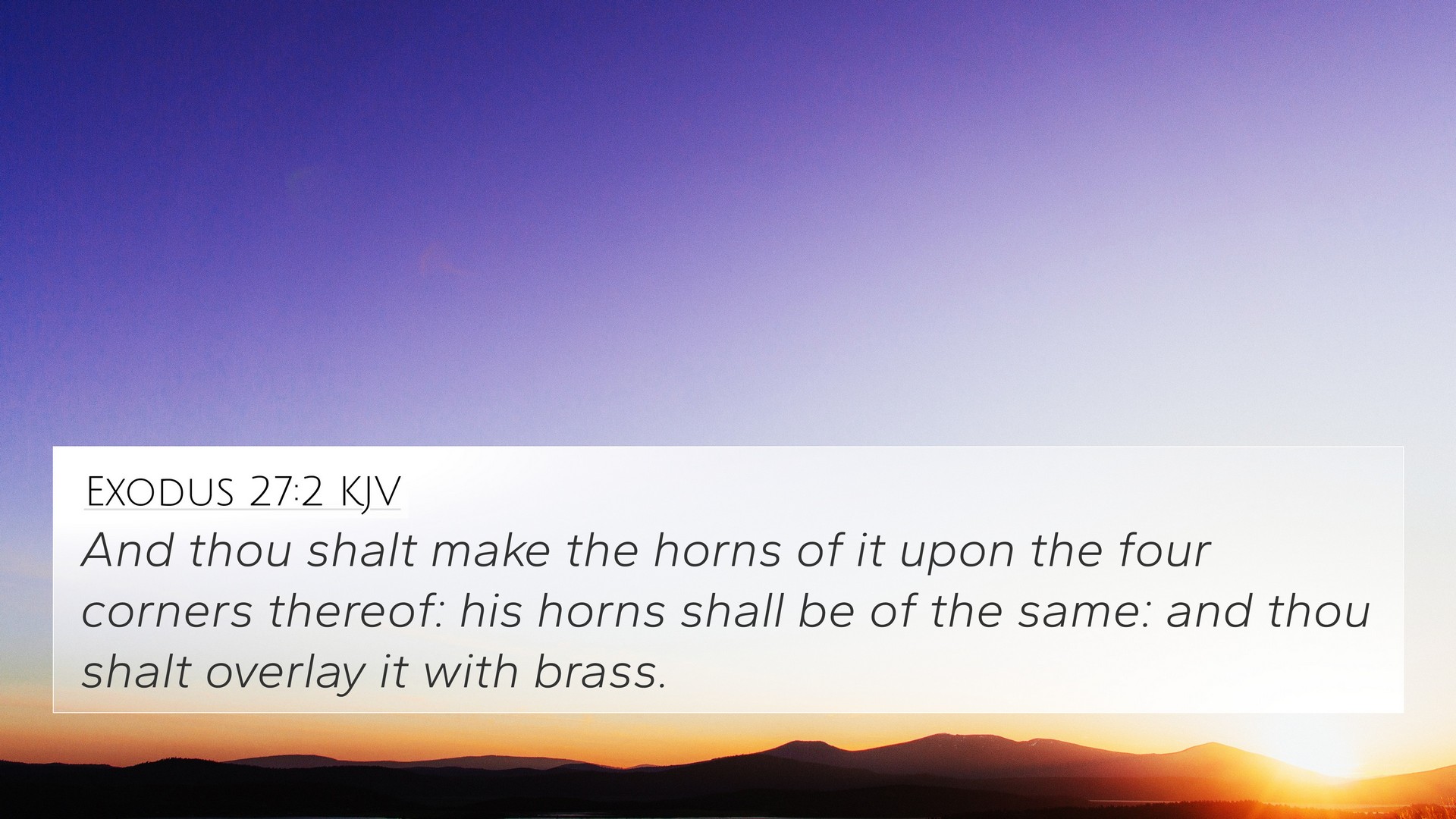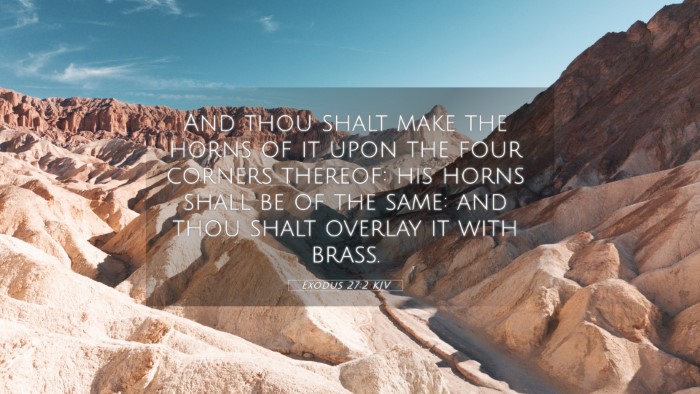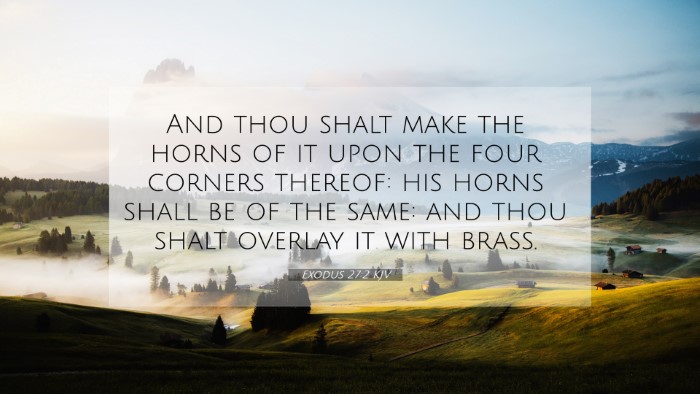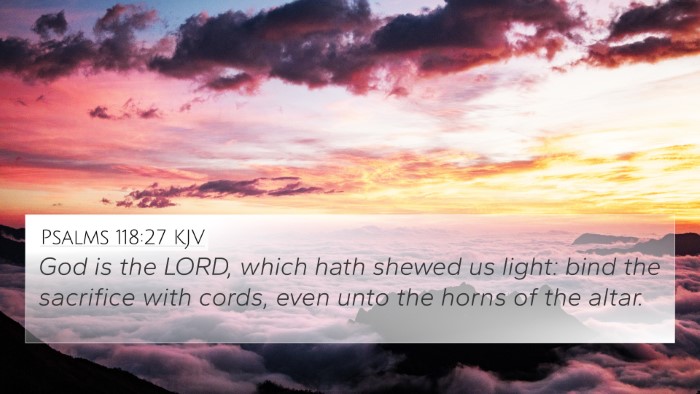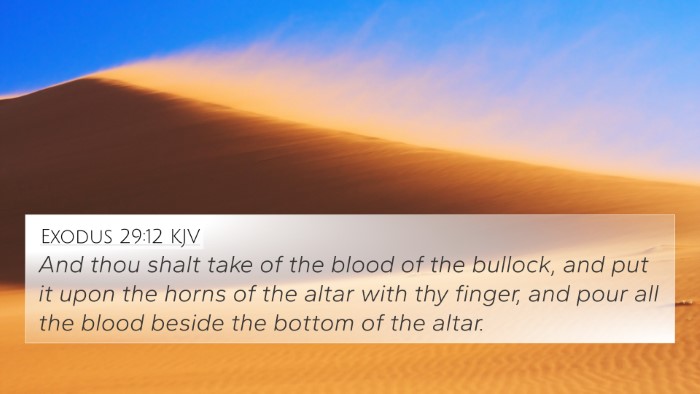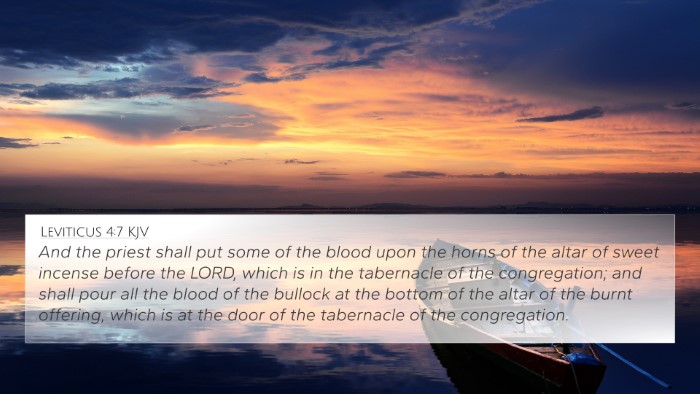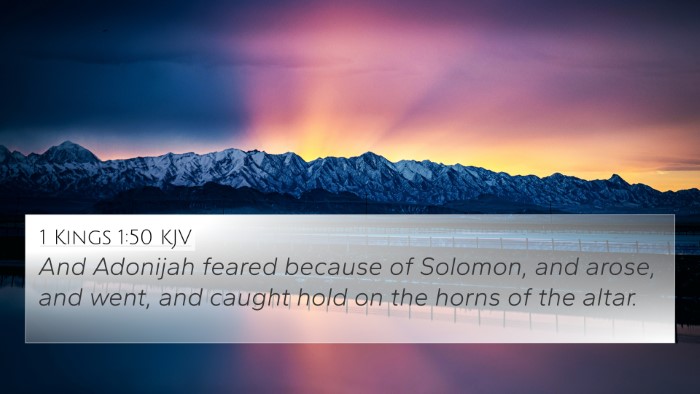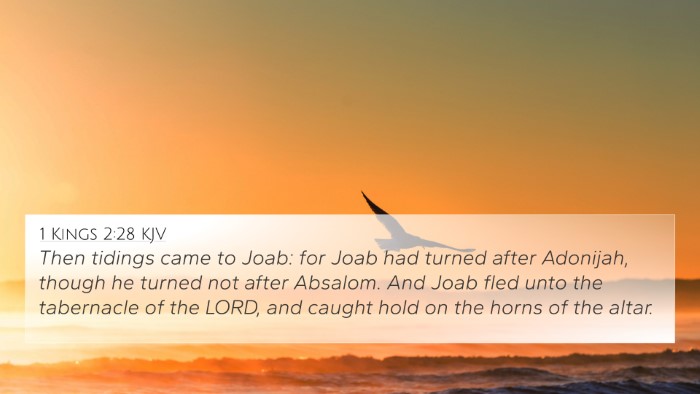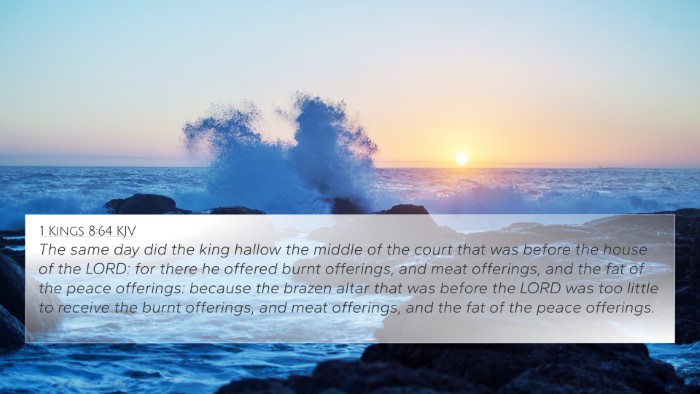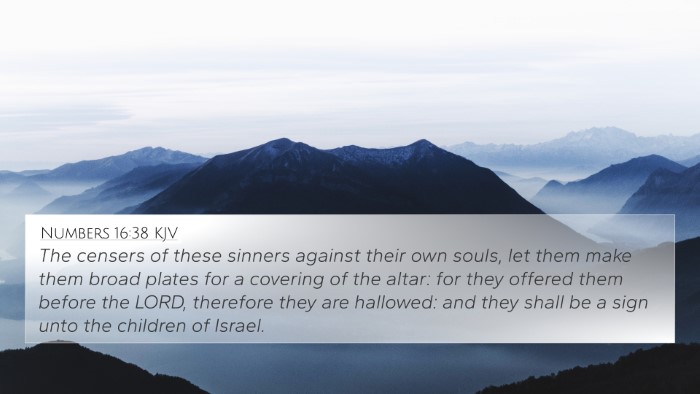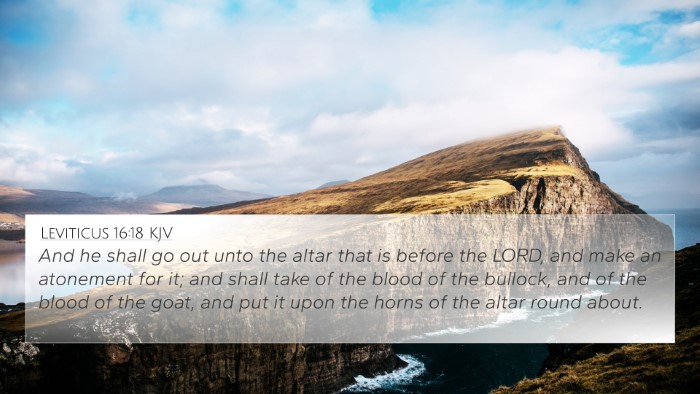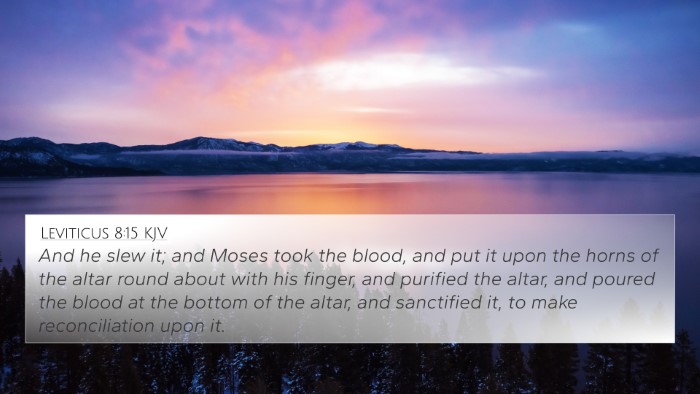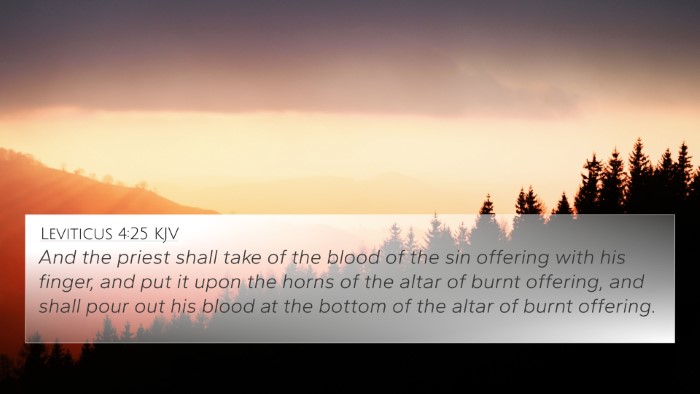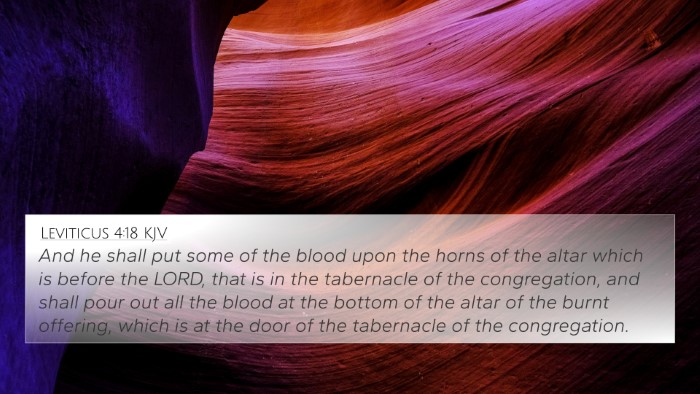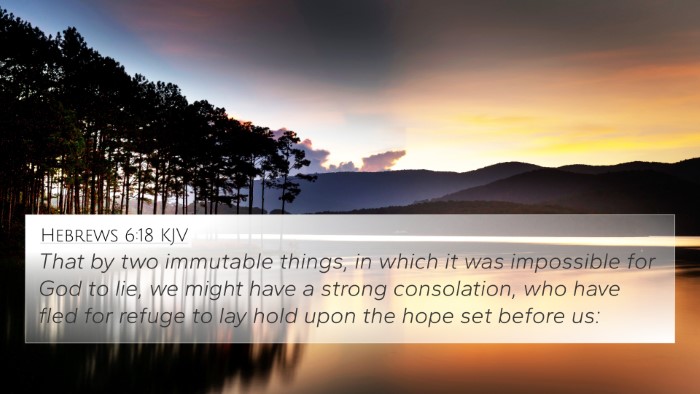Understanding Exodus 27:2
Exodus 27:2 reads: "And thou shalt make the altar of shittim wood, five cubits long, and five cubits broad; the altar shall be four square: and the height thereof shall be three cubits."
Contextual Significance
This verse is part of the instructions given to Moses for the construction of the tabernacle and its furnishings. The altar described here is integral to the sacrificial system of ancient Israel and symbolizes the necessity of atonement and worship.
Commentary Insights
Several public domain commentaries provide valuable insights regarding the meaning and significance of Exodus 27:2. Here are some summarized thoughts:
-
Matthew Henry:
Henry emphasizes the altar's function as a place of sacrifice, which points to the need for atonement in divine worship. The materials specified—shittim wood—indicate durability and strength, representing the enduring covenant between God and His people.
-
Albert Barnes:
Barnes remarks that the specific dimensions and materials are of critical importance, not just in terms of architectural design but in conveying deeper theological truths about God's holiness and the seriousness of sin, which requires a sacrifice.
-
Adam Clarke:
Clarke notes the practicalities involved in the arrangement of the altar within the tabernacle, highlighting that it must be prominent within the worship setting, symbolizing the centrality of sacrifice in atonement rituals.
Thematic Connections
This verse can be cross-referenced with various other Biblical texts that enhance its meaning and highlight the theme of sacrifice:
- Leviticus 1:5: Discusses the process of offering a bull as a burnt offering, indicating the significance of the altar.
- Hebrews 9:22: States that "without the shedding of blood, there is no remission," linking the Old Testament sacrifices to New Testament themes of atonement.
- Romans 12:1: Encourages believers to present their bodies as living sacrifices, illustrating the fulfillment of the sacrificial system in Christ.
- Exodus 30:1-3: Outlines the construction of the altar of incense, showing the importance of various altars in worship.
- Revelation 8:3-4: Mentions an angel at the altar of incense, highlighting the continuity of altar symbolism in worship across both covenants.
- Philippians 4:18: Refers to offerings being a sweet-smelling sacrifice, akin to the offerings made at the altar.
- Genesis 4:4: The first mention of an offering, relating the need for sacrifice back to the principles set from the beginning.
Connections Between Bible Verses
Exploring connections between Bible verses is critical for deeper understanding. The altar in Exodus 27:2 connects to themes of sacrifice found throughout scripture, revealing God's overarching plan for redemption.
Utilizing Bible cross-reference guides is essential for those studying this verse. They illuminate the inter-biblical dialogue that showcases how the Old Testament rituals inform New Testament theology.
Conclusion
Exodus 27:2 serves not just as a directive for constructing a physical altar, but stands as a profound reminder of the necessity and significance of sacrifice in the relationship between God and humanity. By cross-referencing this verse with related scripture, one can gain a richer understanding of its implications and overarching themes.
